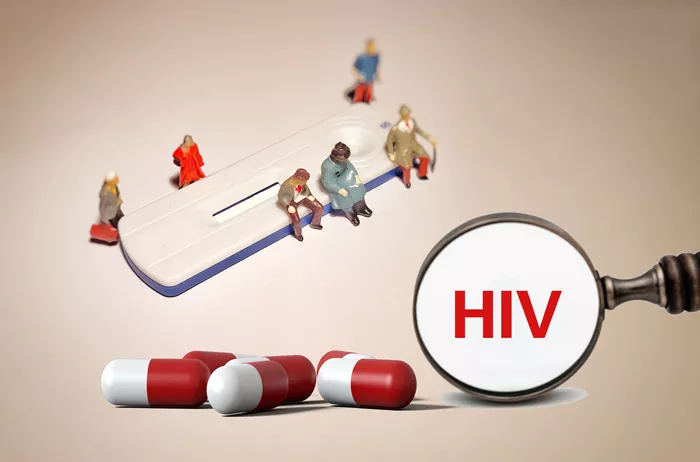In Phnom Penh’s Steung Meanchey neighborhood, a quiet transformation is taking place. What looks like an ordinary rental home doubles as a life-saving community hub. Run by outreach worker Chhum Vy, this modest space is at the heart of Men’s Health Cambodia’s (MHC) fight against HIV among gay men and transgender people.
Every day—often into the evenings—Ms. Vy welcomes clients, providing HIV education, testing, and tools for prevention. Shoes are left at the door, and people sit in circles for open discussions. On the walls, health posters and prevention kits create a space of safety and information.
Her dedication addresses a critical challenge. While Cambodia has made strong progress in reducing HIV infections overall, new cases among men who have sex with men are rising. The reasons are complex: a mix of lingering stigma, lack of access to services, poverty, and risky sexual behaviors.
Understanding the Human Cost
For Ron Sopheab, the fight is personal. He has lost many friends to AIDS over the years. One friend even took his own life after being rejected by his family. Although Sopheab believes social stigma has improved over time, he still sees dangerous gaps in the system. He contracted HIV during a brief stay in detention, where no HIV prevention tools were available.
Today, MHC supports him with peer mentoring and transportation to clinic visits—lifelines that help him stay on treatment and rebuild his life.
Another client, Pom Rotha, faces a different challenge: extreme poverty. Without a valid national ID card, she cannot access government support. She earns money through sex work, where a small percentage of clients refuse condom use. She admits reluctantly giving in when she cannot afford to say no.
Despite this, Ms. Rotha remains HIV-negative thanks to pre-exposure prophylaxis (PrEP)—a medication MHC provides to lower her risk of infection. “It’s what keeps me safe,” she says.
Digital Outreach for a Digital Generation
HIV prevention efforts are evolving. Many young gay men now meet partners online, through hookup apps and social media. While convenient, these platforms increase exposure to risky encounters—especially when users lack knowledge about HIV prevention.
MHC has launched a digital outreach strategy to reach this group. Influencer Bun Pheng manages online campaigns through Facebook Live, where experts and local celebrities share tips on safe sex, HIV prevention, and mental health. His team also actively engages users on dating apps like Grindr and Blued, directing them to testing and counseling services.
“If someone messages us needing help, we link them directly to an outreach worker nearby,” said Pheng.
Clients can choose how to access services: in-person testing or home delivery of self-testing kits (some also screen for syphilis). MHC staff provide pre-test counseling and assist clients with reactive results through confirmatory lab tests and follow-up care.
Meeting People Where They Are
Cambodia’s HIV response is not limited to city centers. MHC and its partners, like the Khmer HIV/AIDS NGO Alliance (KHANA), run mobile vans that visit hotspots nightly, offering rapid HIV testing and information in areas frequented by gay and transgender individuals.
These mobile services are critical, said Patricia Ongpin, UNAIDS Country Director for Cambodia, Laos, and Malaysia.
“Community-led programs are reaching people in ways government clinics can’t,” she said. “To truly end AIDS, we need to invest in these grassroots solutions that reflect people’s real lives.”
Challenging Stigma from Within
While public stigma may have decreased, self-stigma remains a silent barrier. Ms. Vy recalls a painful case where a woman avoided services—even after counseling—and ultimately died from preventable illness.
“That’s the real danger,” she said. “It’s not just the virus. It’s the fear and shame that keeps people from seeking help.”
At the end of her Sunday sessions, clients leave with counseling, support—and condoms in hand. Vy’s goal is not only prevention but empowerment: making people feel worthy of care, informed about their health, and confident to protect themselves.
As Cambodia continues to modernize its HIV response, one message remains clear: change begins in the community, one conversation at a time.
Related topics:
- Men Face Higher Death Rates from Hypertension, Diabetes, and HIV
- Could HIV Medications Help Prevent Alzheimer’s Disease?
- Men Face Higher Death Rates From Diabetes, High Blood Pressure, And HIV


